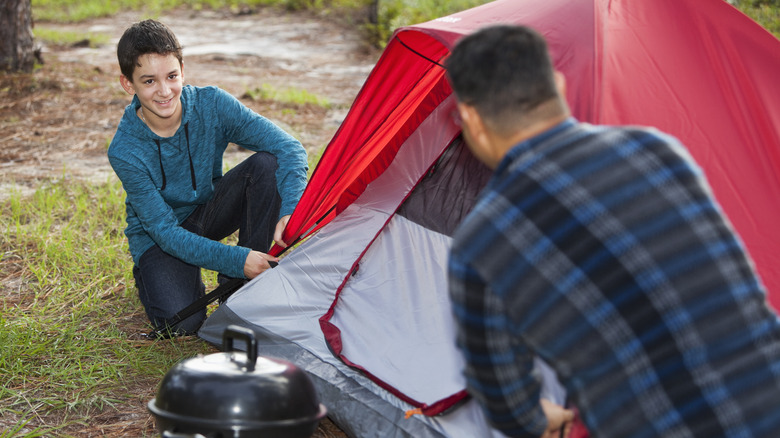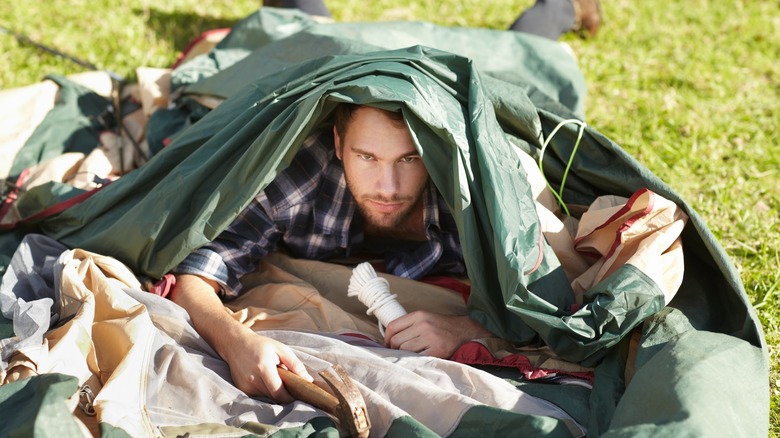Simple Tips That Will Help Make Putting Your Tent Up Even Easier
When camping, pitching a tent can be a stressful experience, especially if you're struggling with the elements. Wind, snow, rain, and mud can make pitching your tent feel impossible. Luckily, there are some tips you can follow to make sure you iron out any problems before you even drive in your first stake. One of the most simple tips out there that makes pitching your tent a breeze is to practice with your tent of choice at home, before you even arrive at your camping location. That way, you'll know how the drill goes once you get to the camp site. John Junke Jr., moderator of REI Conversations, which is a camping digital community, tells The Washington Post, "There's an adventurer's credo that says 'Don't let the first time be the first time.' Don't make the moment when you roll into the campsite [be] the moment you unpack it and try to learn how to make it work."
Junke also advises to never pitch your tent in the dark. In fact, he advises that pitching your tent should be the first thing you do upon arrival, while you still have the sun on your side. Imagine having to read tent instructions in the dark, fumbling with your flashlight, and battling your own fatigue! Junke advises to avoid that frustration and make the tent your first priority.
Check the terrain and fire hazards first
The biggest bane of your tent-pitching existence will be the terrain, especially if you don't scope it out for inconsistencies. Mud, sunken ground, or uneven terrain will make driving the stakes of your tent into the ground a nightmare. If it's raining, mud can shift, taking your tent with it. You always want to set up your tent on level ground. If you've found your spot of choice, a good idea is to brush away any large sticks, stones, branches, and other rubbish. You definitely don't want to wake up in the middle of the night in pain because a large stone is digging into your butt.
Check to make sure you don't keep your tent near a fire hazard, like a fire pit or propane cooker. Tents are usually made of nylon, and they can ignite or melt if exposed to high heat. So if you're inside the tent when the zippers melt, you could horrifically be trapped inside a burning inferno. Never set up your tent near an open fire and never set up your cooking tools inside the tent.
If you're camping on especially tough or frozen ground, make sure you bring a hammer with you to securely drive the stakes into the ground. Nothing could be worse that a stiff breeze carrying your beloved tent away into the treetops or a nearby lake. Try to drive the stakes at a 90-degree angle with the terrain as much as possible.

